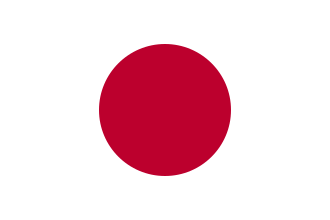Frequently Asked Consumer Questions (FAQs)
This information is based on current knowledge and is subject to change on short or no notice.
I usually see this product with the OK symbol, but this time it’s missing. Can I still use it?
Only products that actually bear the OK symbol on their package are certified. Some companies produce in multiple facilities, not all of which are kosher. Always check the packaging before purchasing. Read more here.
An item is certified OK-D but doesn’t list any dairy ingredients. Is it really dairy?
Yes. If a product carries the OK-D symbol, it is considered kosher dairy.
That’s because:
– It may include dairy ingredients (even if not always listed on the label).
– The company may substitute dairy ingredients in production.
– The equipment may have dairy residue from other runs (common with chocolates, microwave popcorn, or fried products).
For kashrus purposes, always treat OK-D as dairy chalav stam, regardless of allergen labeling.
Read more here.
Are Marketside bagels from Walmart pas Yisroel?
Yes, Marketside bagels with the OK symbol are Pas Yisroel. For the most up-to-date list, check the OK Pas Yisroel guide.
Why are Morningstar Farms products certified dairy if many are vegan?
Because of the way they are produced. Even if a specific item has no dairy ingredients, the equipment or production process requires that it be labeled as kosher dairy.
Why do you certify chocolate as OK-D when it doesn’t list dairy ingredients?
Chocolate equipment is difficult to kasher properly. Since companies rarely allow kashering with boiling water (the proper method), dairy chocolate residue can remain and carry over into non-dairy runs. For this reason, chocolate made on such equipment is certified OK-D.
The allergen warning on the package says, "May contain milk." How can the product be pareve?
Allergen warnings include airborne particles and allergens in the same production facility. A product that is certified pareve is completely pareve, even if there is an allergen warning.
Is the salad dressing in the Dole Coleslaw kit kosher certified?
Yes! As long as the outer package has the OK symbol, both the salad and the dressing inside are certified kosher pareve.
Is a particular hechsher reliable?
OK Kosher’s mission is to support the global kosher community by ensuring every product and facility we certify meets the highest standards of kashrus.
– Retail products – meaning finished, packaged items you’d find on store shelves, certified by many different agencies – are not something we publicly rate or can endorse. Often, it’s the specific product and its production details that matter. Because every home has its own halachic standards, we encourage you to consult your local Rav to decide what’s best for you. If you don’t have one, reaching out to the nearest Orthodox synagogue is a great place to start.
– Ingredients and raw materials – the items used in manufacturing – are carefully reviewed by our team on a case-by-case basis, to determine if they meet OK Kosher’s standards. Some certifications do not meet our requirements, while others may be fully or conditionally approved. These reviews are part of our internal process to protect the integrity of the OK symbol and are not intended as consumer buying guidance.
How do you certify peeled garlic cloves if garlic can’t be left overnight?
Rav Moshe Feinstein ruled that the concern about peeled garlic does not apply to commercial production. In addition, the small hard tip left on commercial garlic cloves means they are not considered “fully peeled,” which further avoids the issue.
Do vitamins and medications need a hechsher?
Vitamins and supplements: Ideally, these should have a reliable kosher symbol.
Medications: Since health comes first, speak with both your doctor and your Rav when deciding what is required.
Do canned fruits and vegetables need a hechsher?
Yes. All canned products should have a reliable kosher certification. The canning process uses high heat, and non-kosher items may be made on the same equipment. Read more here.
Do frozen fruits and vegetables need a hechsher?
Plain frozen fruits or vegetables with no added ingredients may be used without certification, provided there are no insect concerns.
If additives are included (like preservatives, sauces, or seasonings), a reliable kosher certification is required.
How do I kasher my oven, stovetop, microwave, convection oven, or BBQ grill?
Full kashering guides are available:
Oven – Clean the oven thoroughly and leave it unused for 24 hours. Run the self-clean cycle. If the oven does not have a self-clean cycle, turn it to the highest temperature for two hours.
Stovetop – Click here for instructions, by type
Microwave – Click here for instructions
Convection oven – Click here for instructions
BBQ grill – Click here for instructions
I bought a pre-seasoned cast iron pan without a hechsher. Does it need to be kashered?
Lechatchila (best practice): Yes. Kasher it by heating in an oven at 500°F for one hour, or place it face-down over an open flame for ~20 minutes.
B’dieved (after the fact): If you already used it, the food is usually fine, since most oils used for seasoning in the U.S. are vegetable-based. If the pan was made outside the U.S., consult a local kashrus expert.
I’m not sure if an item needs to be toiveled. How can I find out?
We’ve created a handy guide to help you know which utensils and appliances require tevilah. Click here for the guide.


 EN
EN  ZH
ZH  KR
KR  BR
BR  ES
ES  IN
IN  IL
IL  JP
JP 